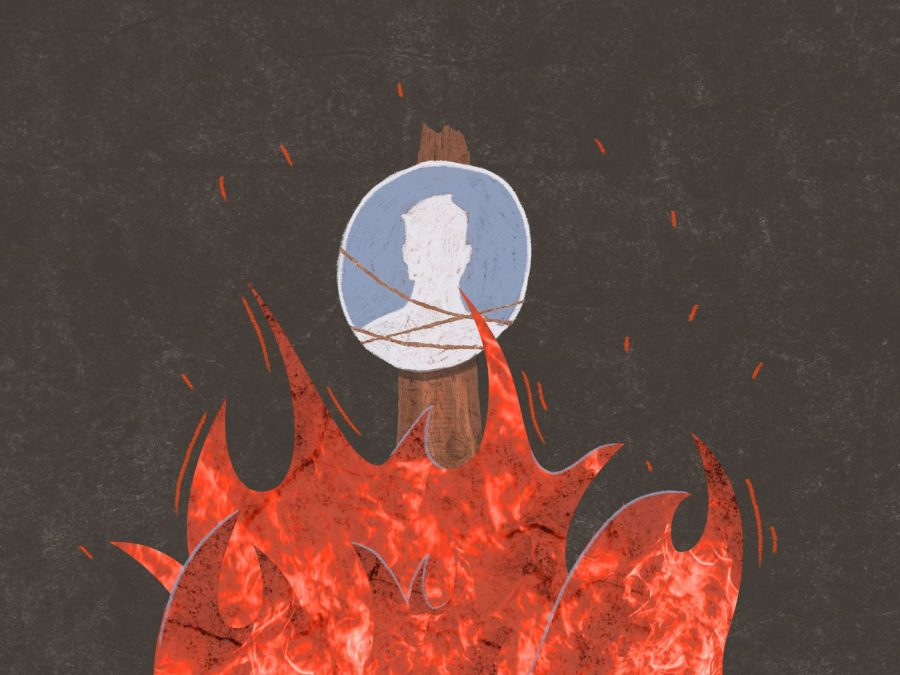The Fruitless Effect of Cancel Culture
More performative than effective, cancel culture isn’t really cancelling anyone.
#DojaCatisOverParty. #JimmyFallonisOverParty. #LanaDelRayisOverParty. These names have all graced the Trending page on Twitter at some point. Are these physical parties? Technically not, but people are still celebrating. What for?
These “parties” are for people who have been cancelled on social media sites. Cancelling is usually when a celebrity is ousted for doing something wrong and many on social media call to blacklist them, in a way. For example, Doja Cat, female artist, was cancelled for socializing with supposed racist users in a group chat. In Jimmy Fallon’s instance, there was a Saturday Night Live skit where his face was painted darker to imitate Jesse Jackson; this is known as “blackface” and is considered a racist move. As for Lana Del Rey, she was considered anti-feminist after remarking about all the other female artists who get recognition for their work, but in her years of stardom, she has not been given the same treatment.
What has “cancelling” done to these artists? To be candid, nothing.
Doja Cat has still been releasing music and has kept her platform; she receives a little over 3.1 million listeners monthly, even after the fact. Jimmy Fallon still airs his weeknight shows. Lana Del Rey kept her platform and is still active in the music community. The root idea of cancelling is to remove the popularity around these people, and so far, these notable examples have experienced next to no impact on their platform.
Cancel culture is more performative than it is successful. You see a trending hashtag on Twitter, and you won’t remember it within the next few days. You see an entertainment article in the gossip column of a magazine, and in weeks it will be old news. It becomes more of a temporary time-out for celebrities; the lasting effects of cancellation lasts weeks, at most.
Sometimes, these cancellations are years in the making. J.K. Rowling, author of the infamous “Harry Potter” books, has proven time and time again of misrepresentation, transphobia, and cultural blindness. In her famous series, she uses generic and racist themes, including the only Asian character being named Cho Chang, and the sole Irish character being known for blowing various objects up (those familiar with The Troubles will recognize as to why some may find offense to this). J.K Rowling has been depicted as one of the most widely cancelled authors, yet many still choose to support her works.
It’s easy to hide behind the secrecy of social media, and many avoid personal interaction by posting a video or commenting a remark, sparking others to follow. It’s a “monkey see, monkey do” action, and no one in this day and age wants to feel left out.
To truly cancel a person, you rid them of their entire platform, where they have no way of gaining back their popularity. Yet, I cannot think of one person that has genuinely been cancelled completely. A mark of them is always left, and will always be there. What is offensive to one group of people isn’t to another, therefore leaving people who will still support the celebrity of their choosing. Generation Z has gotten quite good at pretending people are rid of their platform, but they never really disappear.
Typically, I don’t notice which celebrity loses their fame. I can’t track which artist I have to remove from my playlist, or block on Twitter or Instagram. It’s an endless repetition of person after person being called out for something offensive, to which the response is either indifference or sympathy. We try to make celebrities pay reparations for statements or actions, but we never get that end result of helping someone learn.
Call-out culture, rather than cancel culture, is a more successful method of pointing out mistakes of those in the public eye. We can’t expect every celebrity to be perfect, nor blame the people we gave a platform. We gave them their popularity; we can’t expect them to uphold every standard we have. Therefore, call someone out, make someone aware of their actions, and educate them on what the majority deems socially correct.
Cancel culture is nowhere near over. People will still try to excuse actions or blacklist celebrities for offensive things, and there will always be people who disagree. Cancel culture needs to be cancelled; yet, we’ll be lucky if the majority reaches a verdict.

Senior Evelyn Blower is a second-year staff reporter and current Assistant Editor-in-Chief for the Spotlight and responsible for the Features and Opinion...


